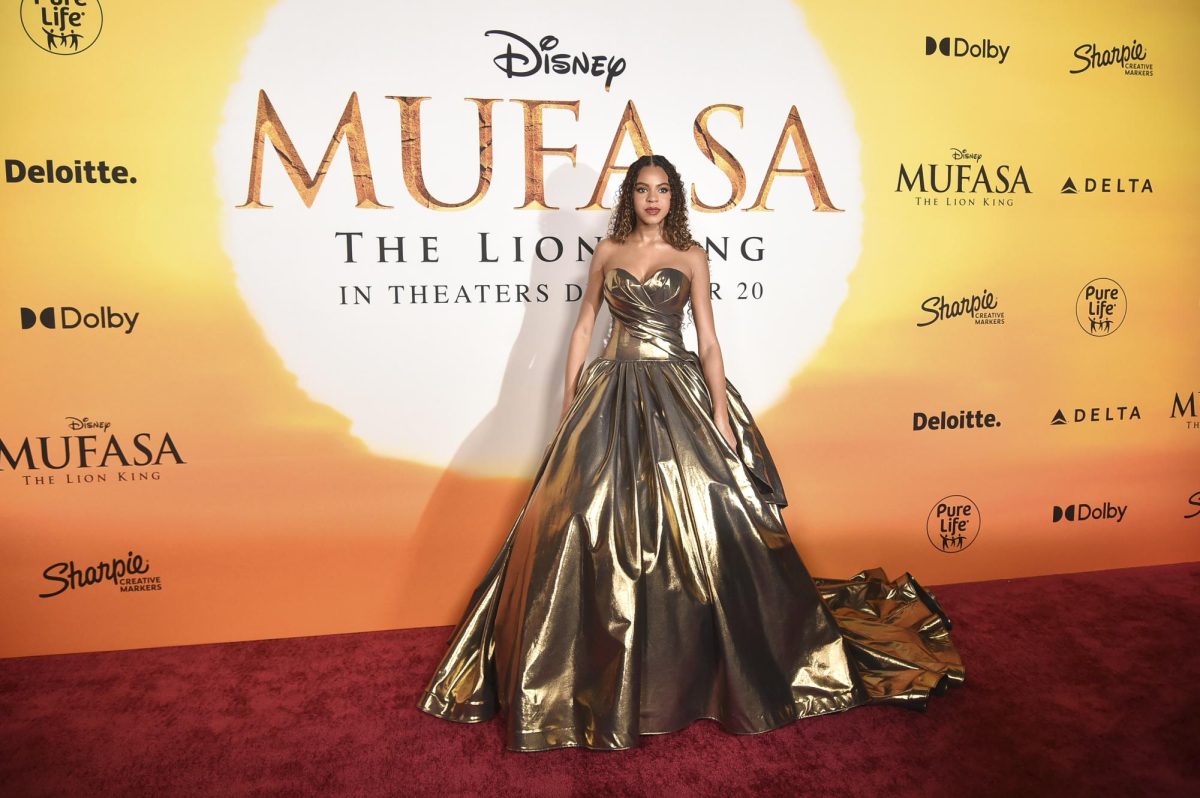After logging my experience watching “Mufasa: The Lion King” on the movie rating app Letterboxd, giving it five stars, I found that my ranking was higher than most of the film’s reviews.
The film starts out by introducing us to Kiara, the daughter of Simba and granddaughter of Mufasa, before we’re transported to the past through a story recounted by Rafiki, detailing the origins of the late Mufasa.
The scene begins with a young cub — Mufasa — who gets separated from his parents, eerily similar to the stampede scene in the original 1994 film, before finding his way to another pride when he is rescued by another young cub, Taka.
While Taka and his mother readily take in Mufasa, Taka’s father King Obasi sees Mufasa as an outsider and is reluctant to accept him.
To prove his worth, Obasi orders Mufasa to race Taka, believing his own son would defeat Mufasa, but Taka, who always wanted a brother, lets Mufasa win.
Obasi is disappointed in Taka, but keeps his word by letting Mufasa stay but forces him to stay with the lionesses.
As the years pass, Mufasa learns to hunt, unlike the male lions, and he and Taka form a deep familial bond — of which Obasi continues to disapprove.
Taka, who is Obasi’s heir, doesn’t want to be king, despite his father’s wishes. Mufasa, on the other hand, has all the makings to be a powerful leader in his own right, and this is proven when the two lions are attacked by a group of white lions.
While Mufasa fights back against the other lions, Taka retreats, showing his cowardice and disappointing his father.
In the fight, Mufasa kills the leader of the pride’s son, waging a war with the Outsiders, as they are called in the film.
To save their lineage, Obasi tells Taka and Mufasa to retreat, as they knew the white lions were coming for blood.
Over the course of the journey, still being told by Rafiki, coupled with comedic relief from lovable duo Timon and Pumbaa, the audience is introduced to Sarabi, her guardian bird Zazu, and the young Rafiki, who all team up with Mufasa and Taka to find a rumored land of abundance called Milele.
On their journey, Taka admits to Mufasa that he likes Sarabi, and Mufasa helps his brother by giving him advice that seems to work in the beginning, but Sarabi sees through Taka and knows deep down that Mufasa is the one meant for her.
The two lions share a night together, and unbeknownst to them, Taka had witnessed everything.
Feeling betrayed by his brother, Taka forms an alliance with the Outsiders and reveals their plan to get to Milele.
Once the group arrives in Milele, they are met by the Outsiders, and it is revealed that Taka betrayed them.
In the end, Mufasa gathers the animals of Milele to fight back against the Outsiders, and with the strength of numbers, they defeat them, but not before their king strikes Taka, leaving him with a deep scar.
Although it is pretty evident from the start, it is finally revealed that Taka is the character we all know as the vengeful Scar.
Many critics say the rift between Mufasa and Scar being caused by a girl didn’t seem plausible, but in the original film, Scar is seen trying to flirt with Sarabi on occasion, so it made for the perfect set-up for the sequel.
Many of the beloved aspects of the original film were explained with the prequel, such as the formation of pride rock and the way Mufasa became king.
Everything in the prequel filled in a blank that the original film couldn’t.
Some might complain that those small details didn’t need an explanation, but for others of us, it was a dose of nostalgia.
For me, it brought me back to my childhood when I had first watched “The Lion King,” and it was just as impactful.
Other critics, however, were disappointed in the photorealistic animation of the film.
I think this comes purely from preference because the photorealism present was a factor that didn’t bother me at all. In fact, I loved it.
Another aspect that many people seemed to dislike about the film was the 7-song soundtrack from none other than Lin-Manuel Miranda.
Unlike the unfortunate soundtrack of “The Little Mermaid” composed by Miranda, I actually loved the kitschy songs of this film.
I mean, who hasn’t been singing “I always wanted a brothaaa” to themselves the past few months?
And sure, “Bye Bye” is not your typical villain song, but I thought it was camp.
And at the end of the day, it’s a movie franchise about lions who sing and dance, so I can never be too critical about any of it.














